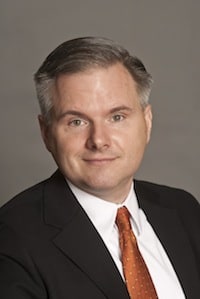 RMA held its 30th annual securities lending conference last week, just a few days after Fran Garritt took over as the organization’s director of securities lending and market risk, as former director Chris Kunkle left the role to join Wells Fargo. Kunkle still serves as a member of RMA’s executive board, and both had a large presence at the conference, which took place in Boca Raton, Florida. In its first year, the conference was also held in Florida, and this was the 14th year it took place at the Boca Raton Resort and Club. Garritt says the conference started as a way to get everyone out of the office and away from their normal environment so they could talk about what they’re seeing in the industry.
RMA held its 30th annual securities lending conference last week, just a few days after Fran Garritt took over as the organization’s director of securities lending and market risk, as former director Chris Kunkle left the role to join Wells Fargo. Kunkle still serves as a member of RMA’s executive board, and both had a large presence at the conference, which took place in Boca Raton, Florida. In its first year, the conference was also held in Florida, and this was the 14th year it took place at the Boca Raton Resort and Club. Garritt says the conference started as a way to get everyone out of the office and away from their normal environment so they could talk about what they’re seeing in the industry. Will there be any changes at the RMA now that you’ve replaced Chris Kunkle as director?
FG: Chris and I worked closely in fulfilling RMA’s mission of serving members and communicating with regulators, so I do not anticipate a change now. (RMA is in the process of finding a replacement for Garritt’s previous position of associate director of securities lending and market risk.) We will continue our regulatory outreach, and will continue to coordinate our efforts with like-minded organizations such as ISLA, PASLA and SIFMA. Regulators are coordinating globally and we, as an industry, need to do that as well. Along those lines we’ve submitted comment letters jointly with ISLA, PASLA and SIFMA. It’s important that we continue this effort. Regulators share our goal of a smoothly functioning global economy, but sharing the industry’s expertise and concerns with them will help prevent the enactment of rules that could unwittingly cause dislocations in the markets.
What do you hope will come as a result of the conference?
FG: The conference is a productive and influential event, but we believe the work of RMA’s Securities Lending Committee, which works year-round, is also vital. Our goal, especially since the crisis and the various regulations that have been spurred by it, is to make sure our members are aware of potential changes to the financial landscape. With regulators like BIS, FSB, and IOSCO coordinating globally, the conference and the committee strive to raise awareness both here and abroad so that everyone understands the possible implications. Part of the solution is getting representatives from various institutions involved in RMA activities, such as our robust Legal, Tax and Regulatory Subcommittee and our Operations and Technology Committee. And part of that is regulatory outreach. In addition to responding to comment letters, we go and visit the regulators. It might be to discuss some specific points in a letter we are about to submit, or it might be an outreach meeting at the New York Fed to discuss issues regarding the federal debt ceiling. We find all of this contact to be extremely valuable.
What do you see as the future of securities lending over the next few years?
FG: My crystal ball is a tad cloudy. So much of the regulation is still being written or is out for commentary. That’s why our Securities Lending Committee and our Legal, Tax and Regulatory Subcommittee are trying to get out in front by responding to the commentary and making sure the regulators know the impact of various rules. Again, we’re trying to avoid the possibility of unintended consequences. In addition to watching out for and reacting to regulatory changes over the next few years, there is also the market element that must be considered. We’ve had quantitative easing since Lehman. The tapering of the program has been delayed, but it is coming. How will the industry deal with the Fed getting out of QE? I think we will be dealing with and discussing these issues for the next three to five years.
What will the conversation be once regulation fully kicks in?
FG: Well, hopefully there won’t be anything that is an industry killer. I think the EU Financial Transaction Tax could have a huge impact. The leverage ratio and Dodd-Frank 165(e), which has a related rule in BIS on the single counterparty credit exposure, could also have a significant impact. The bottom line is, no matter who or where you are, all of the different types of financial markets will have to cope and adapt to some modification and additional regulation. We have to be prepared.